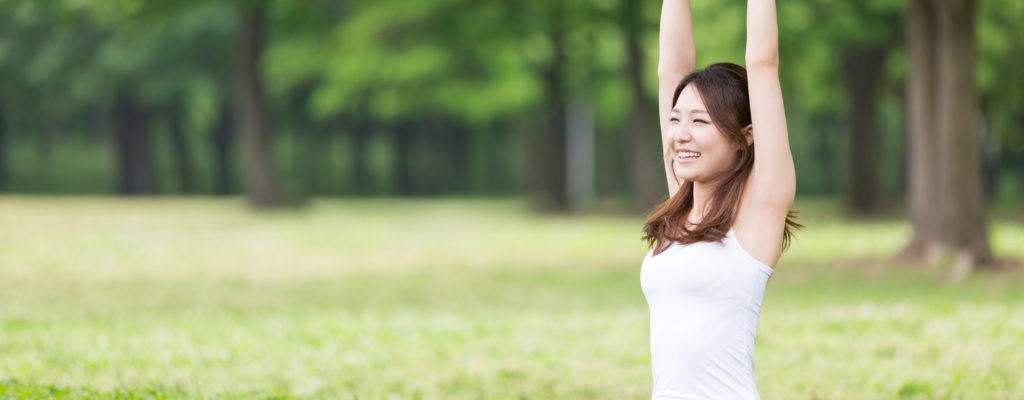Ways to determine an infants caloric needs

Learn how to determine your baby’s caloric needs, including the calories in breast milk and formula, to ensure your infant gets the right nutrition for healthy growth.

You want to be active to get in shape after giving birth, but worry about whether exercising while breastfeeding will negatively affect your baby. Let's go find the answer to this question.
Exercise both improves health and has a positive effect on the mother's mental and physical well-being. But still, some people worry whether exercise can affect breastfeeding or not? Please join aFamilyToday Health to follow the sharing below.
Increases heart health
Improves blood lipid and insulin levels
Feeling happy with being re-energized and reducing stress
Strengthen the affection between mother and baby
Reduce depressive symptoms.
Moderate exercise does not affect the secretion of milk, the nutritional content of milk or the growth of the baby. However, if you exercise to the point of exhaustion, it can increase lactic acid levels and decrease the IgA antibody levels in breast milk.
Studies show no difference in milk secretion, the nutritional content of milk or the weight gain of the baby when the mother exercises. One study showed that when mothers exercise regularly, milk production increases slightly.
There is no difference in immune factors present in breast milk if you exercise moderately. However, the antibody content in milk will decrease shortly after you exercise. Most breastfeeding mothers do not exercise too much. If you exercise too much, the amount of antibodies in breast milk decreases.
IgA antibody levels in breast milk will drop shortly (10-30 minutes) after maternal exercise and will return to normal within an hour. In addition, research has also shown that the antibody content in milk increases after the breast is fully breastfed, regardless of whether the mother exercises strenuously or not.
Research shows that lactic acid increases a negligible amount after mothers exercise moderately (50 - 75% intensity). Lactic acid in breast milk increases moderately if mothers exercise maximum intensity (100%). This increase can last up to 90 minutes after exercise and it is not harmful to your baby.
One study shows that babies may become irritable or refusing to breastfeed after mothers exercise at maximum 100% intensity. However, another study showed that babies still breastfeed normally after mothers exercise even though mothers exercise with maximum intensity.
If your baby doesn't seem to like the taste of your breastmilk after you exercise, this may not be related to exercise. The reason may be that your baby may be distracted with your body odor after exercising or uncomfortable with the salty taste of sweat on you. If this happens, you can express a small amount of milk (3 - 5 ml per breast) before breastfeeding or delay breastfeeding about half an hour after exercise so that the lactic acid level in the milk decreases or you decrease. intensity of exercise down.
For guaranteed exercise and comfort, learn about a breastfeeding mom's sports bra to choose the best shirt, especially when you're doing strenuous exercises like running. , dance…
Some babies do not like to breastfeed when their mothers are sweating (due to the salt on the mother's skin). Wash your breasts or shower before feeding your baby.
If you regularly do exercises that involve arm movement, reduce it and do it with a slower intensity.
Complete water for the body.
Learn how to determine your baby’s caloric needs, including the calories in breast milk and formula, to ensure your infant gets the right nutrition for healthy growth.
Discover the top 5 smartest dog breeds in the world, including Border Collie, Poodle, German Shepherd, Golden Retriever, and Doberman Pinscher. Learn about their unique traits and why they are considered the most intelligent dogs.
Discover 7 nutritious and delicious ways to cook egg porridge for babies, including recipes with cheese, pumpkin, tomato, and more. Learn how to prepare baby-friendly egg porridge with our expert tips.
After a series of medical measures they obtained a complete human vascular system profile.
Watermelon is one of the fruits that many people love, not only cheap but also delicious, nutritious and refreshing in the summer. To get delicious watermelon pieces, show off your housewives, your artistic talents to cut beautiful pieces of watermelon.
aFamilyToday Health - The digestive system and body in each baby is different. Parents need to recognize notes to deal with when babies have a food allergy!
Babies need many factors for perfect development. aFamilyToday Health shares with parents things to keep in mind when babies are 8 weeks old so that parents can take care of their babies the best!
Babies need many factors for perfect development. aFamilyToday Health shares with parents things to keep in mind when babies are 18 weeks so that parents can take care of their babies the best!
Babies need many factors for perfect development. aFamilyToday Health shares with parents things to keep in mind when babies are 28 weeks old so that parents can take care of their babies the best!
Babies need many factors for perfect development. aFamilyToday Health shares with parents things to keep in mind when babies are 32 weeks old so that parents can take care of their babies the best!








